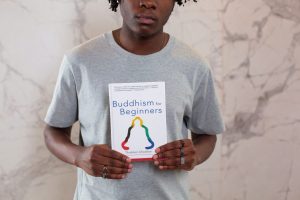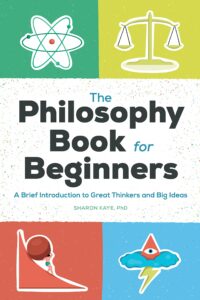In our modern world, where the rhythm of life appears to accelerate with each passing moment, seeking a sanctuary for the mind and soul has never been more essential. Amid the ceaseless rush, what if we were to reveal an age-old philosophical trail that steers you toward tranquility amidst the tumult? Welcome to the domain of Stoicism: a philosophy that has weathered time’s trials and emerges as a radiant fountain of sagacity in our swiftly moving contemporary realm.
Deeply rooted in the teachings of esteemed figures such as Marcus Aurelius, Epictetus, and Seneca, Stoicism transcends mere concepts; it manifests as a lifestyle that champions self-control, virtue, and serenity in every facet of our being. As you embark on this passage, you’ll set forth on a journey of self-exploration, delving into how Stoic principles metamorphose into potent instruments for embracing ambiguity, confronting challenges, and embracing inner tranquility.
Envision the prospect of skillfully navigating the crests and troughs of life with an indomitable mind and a serene heart. Contemplate the ways Stoicism fortifies you to confront everyday hardships with elegance and poise, all while honoring your core values.
Within the confines of this entry, you’ll uncover more than just a definition of Stoicism, insights into its prominent figures, or the advantages of its practice; you’ll also encounter a compilation of the most influential books on the subject. Stoicism extends an invitation to embrace the present, nurture virtue, and sustain tranquility in a world that frequently appears overwhelming. Therefore, if you’re prepared to embark on this expedition of self-revelation and internal metamorphosis, join us as we delve into the treasures of Stoicism and learn to live profoundly amidst the whirlwind of contemporary existence.
What is Stoicism?
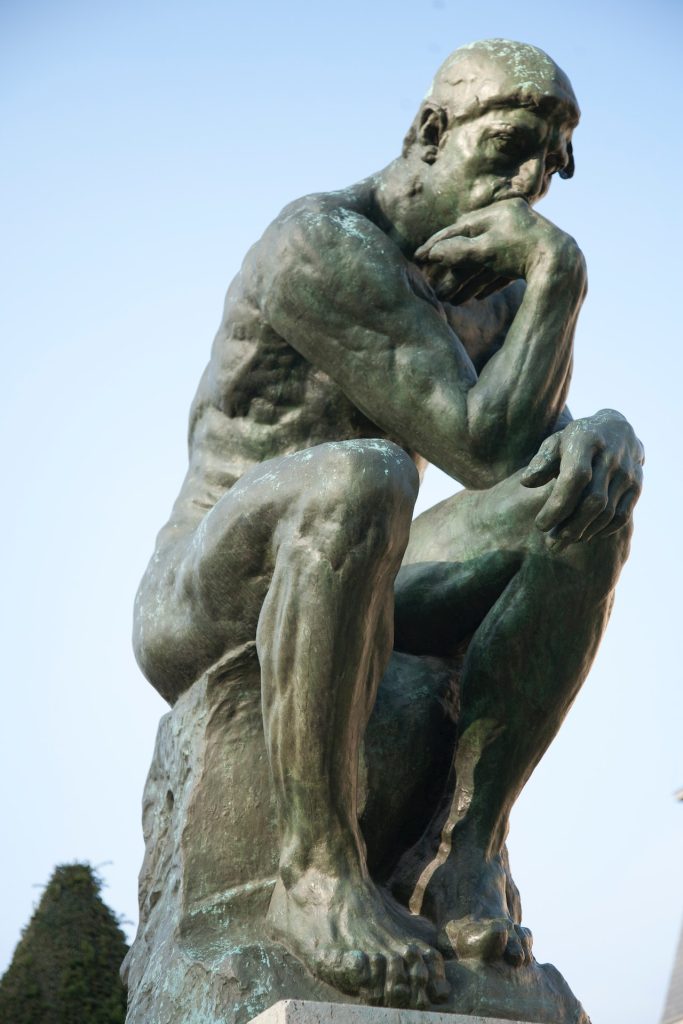
Stoicism, an age-old philosophy, serves as a guide for a more meaningful and calm life. At its heart, it emphasizes managing our emotional responses to external situations, advocating self-control and virtue as essential tools to attain inner tranquility. The Stoics instruct us to embrace the unchangeable and focus on the controllable: our attitudes and actions. Through introspection and application, Stoicism equips us with a valuable method to navigate life’s challenges with strength and insight.
Stoicism’s core belief is that genuine happiness springs from living in harmony with virtue and reason. By consistently evaluating ourselves and nurturing wisdom, we seek not only personal well-being but also the well-being of others. As we delve into its principles, we uncover that Stoicism isn’t about stifling emotions; rather, it’s about comprehending and channeling them positively. Ultimately, Stoicism provides a pathway to authenticity, inner serenity, and a more profound connection to the world around us.
When did Stoicism originate?
The origins of Stoicism can be traced back to ancient Greece, primarily around the 3rd century BC. Zeno of Citium, the philosophy’s founder, embarked on the task of organizing the concepts and teachings that would serve as the bedrock of this school of thought. Zeno and his adherents congregated at the Painted Stoa (Stoa Poikilē) in Athens, hence the moniker «Stoicism.» From this point, Stoicism disseminated and underwent transformations across the passing centuries.
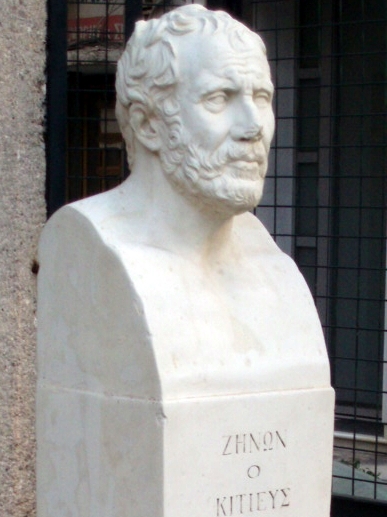
As Stoicism gained traction, it attracted devotees from diverse cultural landscapes and regions, spanning from Greece to Rome and beyond. Central to this philosophy was the conviction that individuals can attain virtue and joy by living in synchronization with reason and nature. The Stoics emphasized the pivotal role of self-discipline, self-command, and the acceptance of unchangeable factors.
Over time, Stoicism emerged as a principal philosophical framework in the ancient world, imprinting its influence on the annals of intellectual history. Its precepts concerning virtue, self-discipline, and inner serenity persist as pertinent in contemporary times. Many of its tenets continue to ignite inspiration in individuals, compelling them to seek a life of deeper significance and equilibrium.
What are the fundamental pillars of Stoic Philosophy?

- Virtue as the Highest Good: Stoicism places utmost importance on cultivating moral excellence and virtuous character.
- Living in Accordance with Nature: Following the natural order and aligning actions with reason and virtue is a cornerstone of Stoic principles.
- Embracing What’s Within Our Control: Stoics emphasize focusing on our thoughts, choices, and responses, as external events are beyond our control.
- Acceptance of What Cannot be Changed: Stoicism teaches the art of accepting situations that lie beyond our influence, fostering inner peace.
- Transmuting Adversity into Opportunity: Stoics view challenges as chances to practice resilience, growth, and wisdom.
- Practicing Self-Discipline: The Stoic path involves mastering self-control, moderation, and restraint in desires.
- Living in the Present Moment: Stoicism encourages embracing the present and refraining from dwelling on the past or anxiously anticipating the future.
- Cultivating Mindfulness: Being fully aware of one’s thoughts, emotions, and actions is crucial for self-improvement.
- Equanimity in the Face of Ups and Downs: Stoics teach maintaining emotional balance regardless of circumstances, thereby avoiding extremes of joy or sorrow.
- Contributing to the Common Good: Stoic philosophy extends to promoting the welfare of society and fostering a sense of interconnectedness.
Who are the key figures of Stoicism?
Stoicism has been shaped by influential figures throughout its history. Here are some notable contributors:
Zeno of Citium
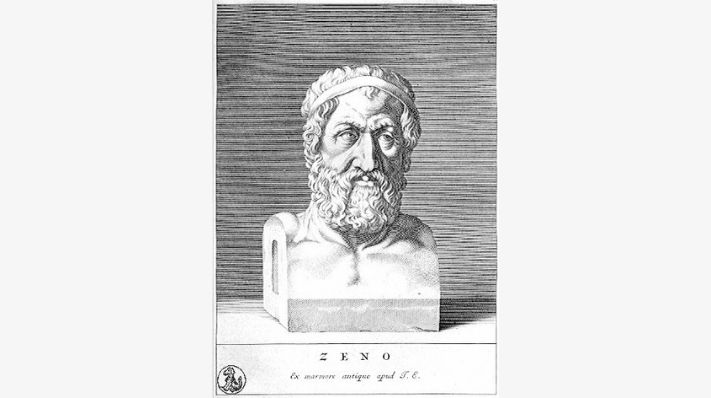
The founder of Stoicism, Zenon developed its foundational principles in the 3rd century BC, emphasizing virtue and wisdom as the path to a flourishing life.
Epictetus

Born a slave, Epictetus rose to prominence as a Stoic philosopher. His teachings focused on the significance of inner freedom, self-mastery, and detachment from external circumstances.
Seneca

A Roman statesman and philosopher, Seneca emphasized virtue, moral integrity, and the cultivation of a tranquil mind. His letters and essays offer practical wisdom for navigating life’s challenges.
Marcus Aurelius
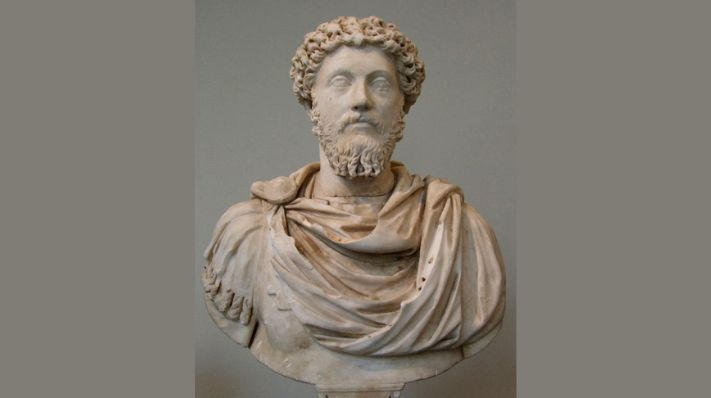
Roman Emperor and Stoic philosopher, Marcus Aurelius authored «Meditations,» a personal exploration of Stoic principles. He advocated for self-improvement, duty, and living according to nature.
Musonius Rufus

A lesser-known Stoic, Musonius emphasized the importance of ethical conduct, virtue, and simplicity. His teachings encompassed various aspects of daily life, from education to relationships.
These figures, each contributing unique perspectives, collectively shaped Stoicism into a practical philosophy for living a virtuous and meaningful life.
Eternal Wisdom: 10 Stoic Quotes on Life and Virtue
- «The world turns aside to let any man pass who knows where he is going.» – Epictetus
- «It is not the man who has too little, but the man who craves more, that is poor.» – Seneca
- «The happiness of your life depends upon the quality of your thoughts.» – Marcus Aurelius
- «He is a wise man who does not grieve for the things which he has not, but rejoices for those which he has.» – Epictetus
- «He who fears death will never do anything worthy of a living man.» – Seneca
- «Very little is needed to make a happy life; it is all within yourself, in your way of thinking.» – Marcus Aurelius
- «Freedom is the only worthy goal in life. It is won by disregarding things that lie beyond our control.» – Epictetus
- «We suffer more often in imagination than in reality.» – Seneca
- «Our life is what our thoughts make it.» – Marcus Aurelius
- «Man conquers the world by conquering himself.» – Zeno of Citium
These quotes encapsulate the essence of Stoic teachings, offering a profound glimpse into the wisdom that has guided individuals for centuries. Rooted in the idea of embracing challenges, cultivating virtue, and finding tranquility within, these words inspire a path toward a life of purpose and contentment. Through the lens of Stoic philosophy, these timeless quotes illuminate the art of navigating life’s complexities with resilience, self-mastery, and a deep connection to our own values.
Elevate Your Existence: Embracing Stoic Philosophy’s Profound Rewards

- Cultivating Inner Calm: Stoicism empowers you to find peace amidst life’s storms.
- Resilience in Adversity: Stoic teachings equip you to face challenges with unwavering strength.
- Living Authentically: Embrace your true self and align your actions with your values.
- Serenity Amidst Chaos: Stoicism offers tools to maintain composure and clarity in hectic times.
- Embracing Change: Learn to adapt and thrive in an ever-changing world.
- Mindful Decision-Making: Develop a rational approach to choices, enhancing your life’s quality.
- Fostering Virtue: Stoic philosophy encourages the cultivation of noble character traits.
- Freedom from External Control: Attain freedom by focusing on what lies within your control.
- Appreciating the Present: Stoicism guides you to savor the here and now, fostering contentment.
- Pursuit of Eudaimonia: Follow Stoic principles to lead a life of flourishing and well-being.
These benefits are just a glimpse of how Stoicism can enrich your life and assist you in facing daily challenges with wisdom and tranquility. These invaluable insights from ancient philosophy provide a roadmap for navigating the complexities of modern existence, enabling you to cultivate resilience, find contentment in the present, and foster a deeper connection with yourself and the world around you. By embracing Stoic principles, you embark on a journey towards self-discovery, self-mastery, and a more meaningful and fulfilling life.
Literary Journey to Stoicism: Books Illuminating the Path to Serenity
The Beginner’s Guide to Stoicism: Tools for Emotional Resilience and Positivity
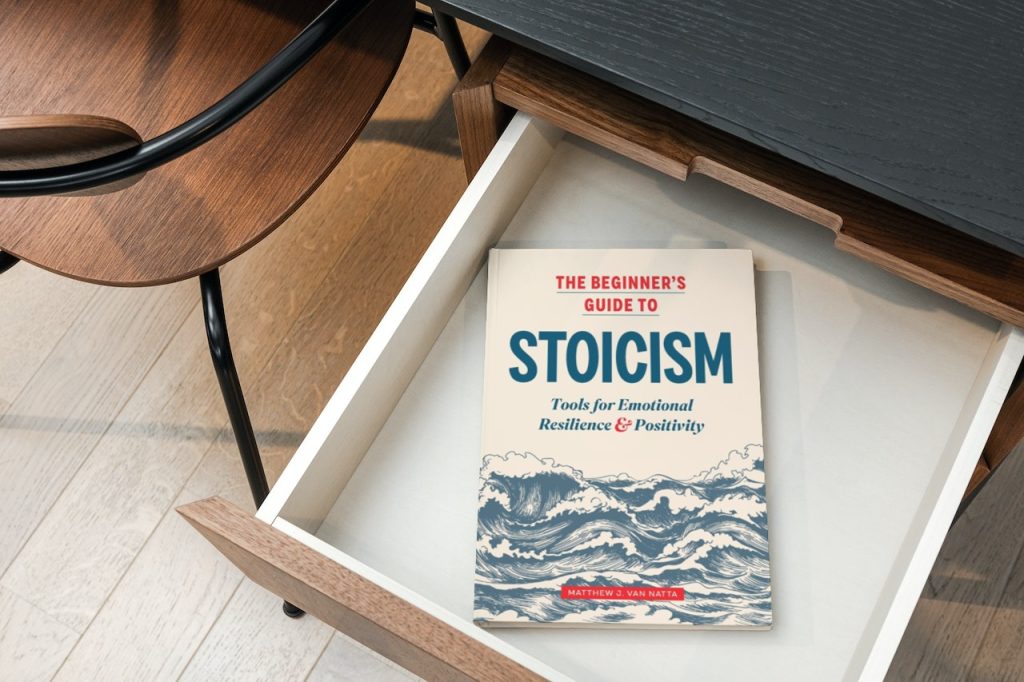
Maximize joy, conquer challenges—uncover the serenity of stoicism
Embracing stoicism means adopting optimism and self-mastery by embracing the unpredictability of outcomes. This guide to stoicism by Matthew Van Natta empowers beginners to navigate their emotions on a journey toward enduring happiness and fulfillment.
Navigating through this user-friendly stoicism manual equips you with emotional tools to release the grip on uncontrollable matters and find delight in the present. Through stimulating strategies and activities, this book facilitates contentment, enabling you to foster closer connections and contribute actively to society.
The Beginner’s Guide to Stoicism encompasses: Stoicism’s evolution—Unearth the origins of stoicism and its principles to unearth tranquility. A holistic mindset—Embrace acceptance with a vital emotional toolkit rooted in Desire, Action, and Assent. Time for introspection—Implement your newfound wisdom into your life through moral inquiries, insightful quotes, and engaging exercises.
Shift your perspective, concentrate on positivity—evolve into your finest self with The Beginner’s Guide to Stoicism.
The Little Book of Stoicism: Timeless Wisdom to Gain Resilience, Confidence, and Calmness
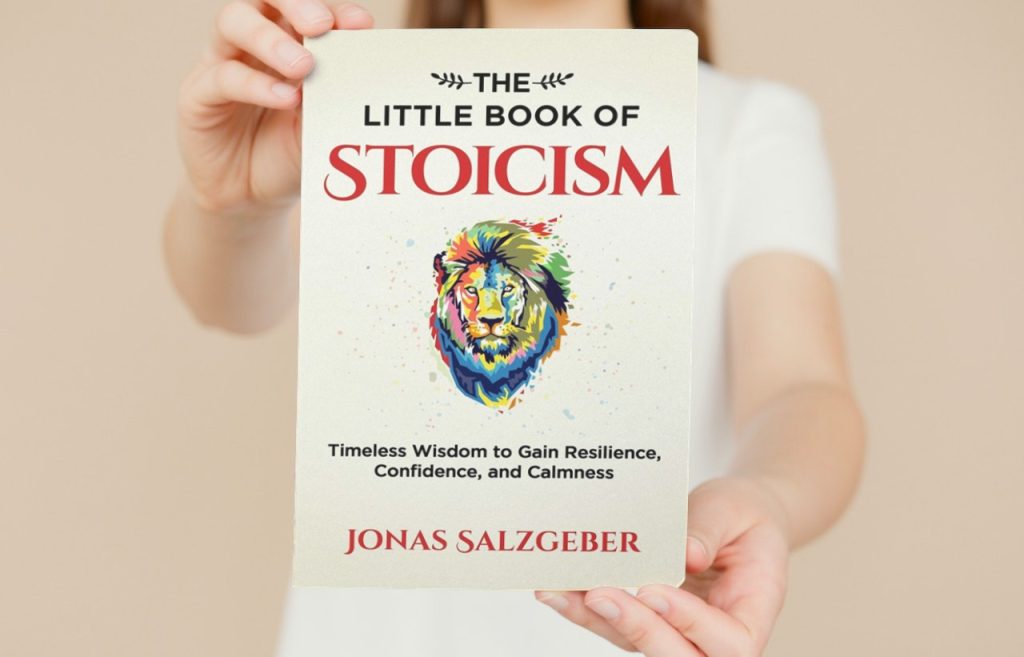
«How much longer will you wait before you demand the best for yourself?»
Epictetus, Stoic philosopher
Where can you discover joy? Build resilience? How do we confront our fears? Cope with the loss of a loved one? And what about those persistent thoughts of melancholy?
While conventional education may not tackle these inquiries, they lie at the heart of ancient philosophical teachings: they taught you how to exist. Although these schools may no longer exist, the need for a guiding philosophy through life remains as relevant as ever for most of us.
This compelling and actionable guide offers effective strategies for navigating life’s challenges and aligning with your highest potential.
A fusion of timeless insights and empowering counsel, The Little Book of Stoicism serves as a compass for those seeking serenity and wisdom amidst today’s chaotic world.
The Practicing Stoic: A Philosophical User’s Manual
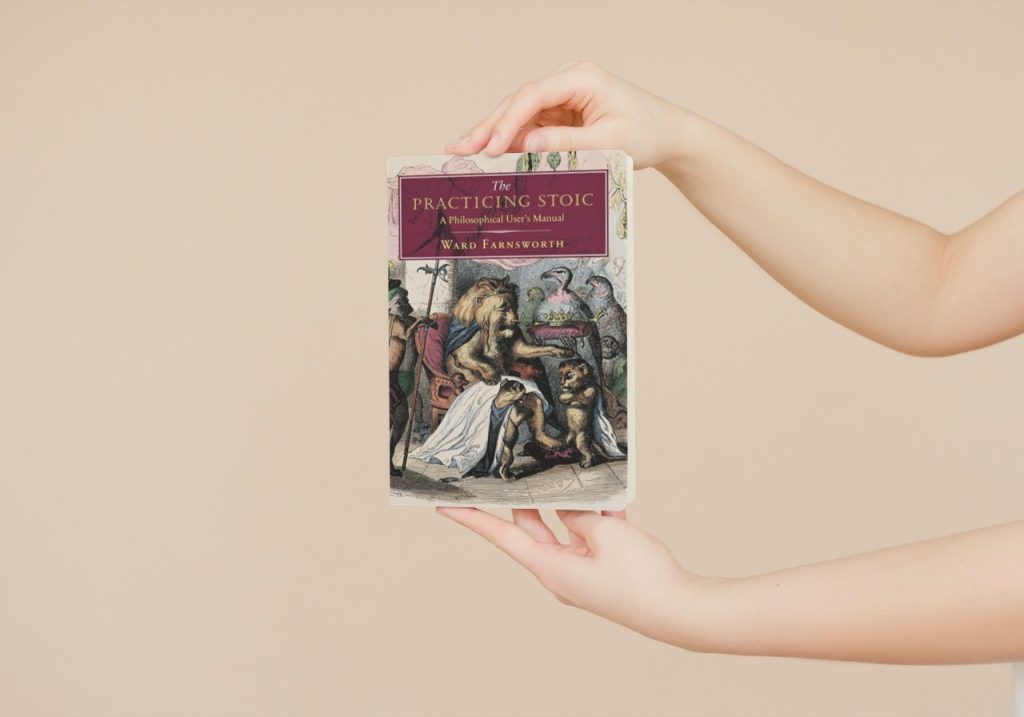
«Farnsworth skillfully blends his own insights with numerous quotes from Epictetus, Seneca, Marcus Aurelius, Montaigne, and others. This isn’t just a book to read—it’s a book to revisit, a source of perspective and solace in times of heartache or adversity».
The Washington Post
Gain clearer vision, wiser living, and a lighter approach to life’s burdens—discover the most profound teachings of the Stoics, presented in their own words. Organized into twelve lessons, Ward Farnsworth meticulously delivers the core of Stoic philosophy along with concise and lucid commentary.
At the heart of Stoicism lies the fundamental notion that we often seem to react directly to events in life. However, this is an illusion. Our reactions are to our judgments and opinions—our thoughts about things, not the things themselves. Stoics strive to become aware of these judgments, to identify their irrationality, and to make more deliberate choices.
Across chapters encompassing Emotion, Adversity, Virtue, and the Opinions of Others, here lies the timeless wisdom about leading a virtuous life from times past—now presented for our modern era.
Stoicism for Inner Peace
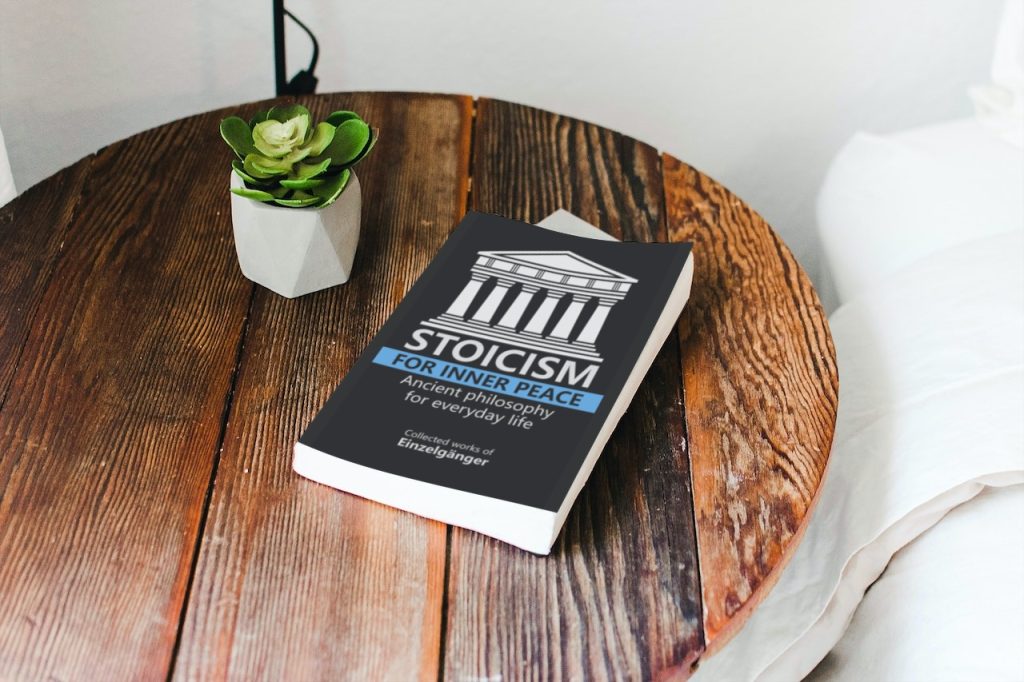
Discover the profound wisdom of ancient Stoics on achieving inner peace and tranquility in the modern world. Equanimity, or ‘inner peace,’ was a cornerstone of Stoic philosophy, a key to true happiness and flourishing. Uncover the timeless teachings that offer guidance on calming the mind amidst life’s challenges.
Einzelgänger, a dedicated student of Stoic philosophy, has delved into the ancient texts to create an expanding collection of essays that translate these teachings for today’s context. Originally shared through engaging YouTube videos, these essays have resonated with audiences seeking practical wisdom. Now, in response to their popularity, Einzelgänger has refined and expanded this collection into book form.
The revised essays not only offer clarity and simplicity but also maintain the depth and richness of the Stoic tradition. Additionally, two new pieces on ‘loneliness’ and ‘guilt’ have been added to address contemporary concerns. In a world filled with uncertainty, Stoicism’s emphasis on inner peace remains relevant. Its teachings empower us to gain perspective, release past burdens, worry less about the future, and enhance our overall quality of life.
The Daily Stoic: 366 Meditations on Wisdom, Perseverance, and the Art of Living
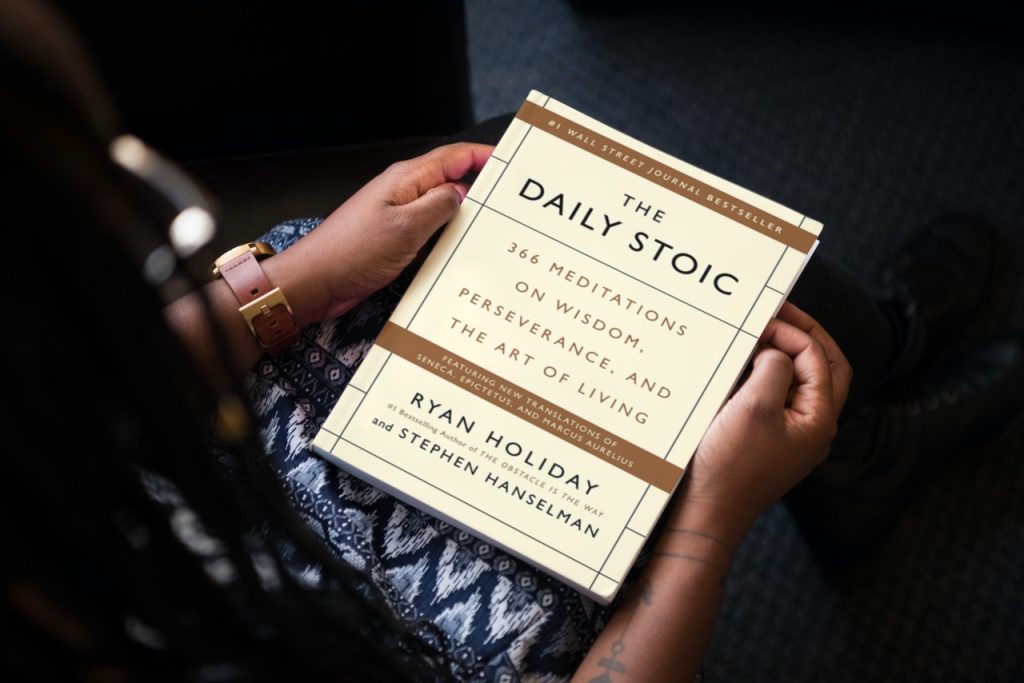
Discover the treasured daily companion of Stoic wisdom—now available in the only authorized print edition in the US, complete with a ribbon marker and over two million copies sold!
Why do brilliant minds throughout history, from George Washington to Ralph Waldo Emerson, and today’s successful figures, including Super Bowl-winning coaches and CEOs, embrace the insights of ancient Stoics? Because they recognize the timeless value of wisdom and the practicality of philosophy in enhancing life, not just as an academic exercise.
The Daily Stoic provides a year-long journey of Stoic wisdom and exercises, showcasing fresh translations from luminaries like Emperor Marcus Aurelius, philosopher-playwright Seneca, and slave-turned-philosopher Epictetus, along with lesser-known yet influential figures like Zeno, Cleanthes, and Musonius Rufus. Each day presents their concise, impactful quotes, along with intriguing historical stories, thought-provoking analysis, and a helpful Greek terms glossary.
Embrace these teachings throughout the year and beyond to nurture serenity, self-awareness, and resilience, paving the way for a fulfilling life.
Exploring Stoic Minds: Classic Works by Philosophical Titans
Embark on a journey into the minds of Stoic giants with our collection of classic works by philosophical titans. Here, you’ll discover the timeless wisdom of Seneca, Marcus Aurelius, and Epictetus—the very minds that have shaped the way we perceive and navigate life’s challenges.
Seneca’s insightful reflections on resilience and virtue, Marcus Aurelius’ meditations on finding meaning amidst chaos, and Epictetus’ practical guide to inner peace remain as relevant today as they were centuries ago. These ancient texts continue to offer profound insights into the human experience, guiding us through the complexities of our modern lives.
As you explore these remarkable works, you’ll uncover a treasure trove of guidance on facing adversity, cultivating self-mastery, and embracing a life of purpose. Join us on this exploration of Stoic minds, where the wisdom of the past becomes a guiding light for the present.
Seneca’s Philosophical Masterpieces: Navigating Life’s Complexities with Stoic Principles
Letters from a Stoic
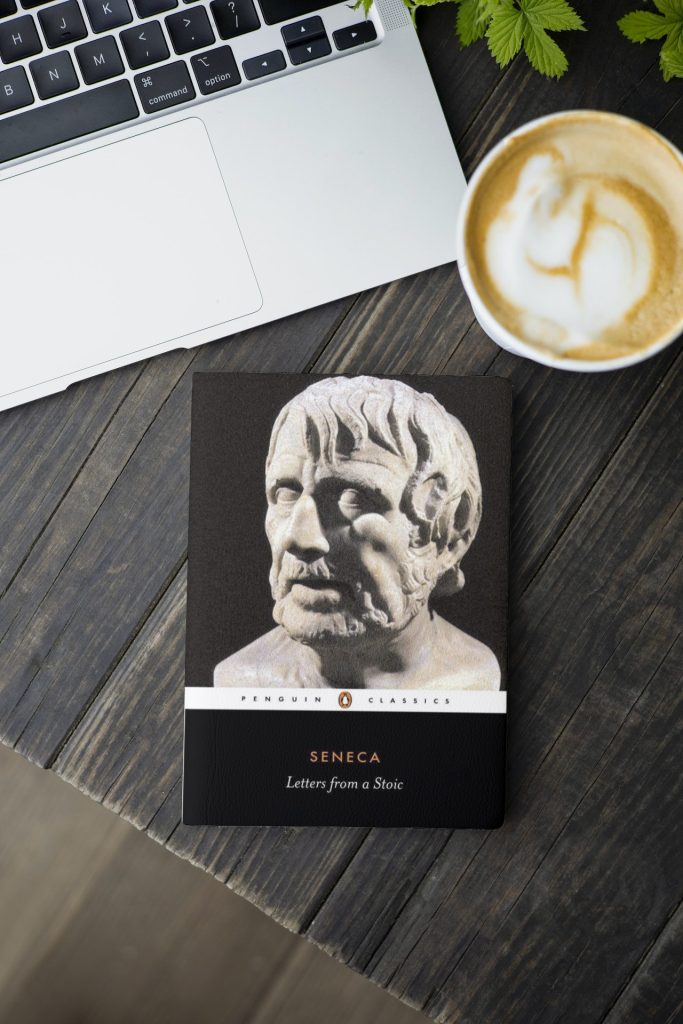
Throughout several tumultuous years of his life, Seneca assumed the role of the guiding force behind the Roman Empire. His profound logic drew heavily from the foundational tenets of Stoicism, which had initially taken root centuries earlier in the heart of Athens. This compilation of Seneca’s letters vividly illustrates his unwavering commitment to the rigorous ethical ideals intrinsic to Stoicism. These ideals represent the wisdom of an individual who maintains inner composure, impervious to overwhelming emotions and the challenges that life presents. Amidst this, Seneca places great emphasis on the importance of friendship and the bravery displayed by ordinary people. Simultaneously, he casts a critical eye on the harsh treatment endured by slaves and the brutality exhibited in the gladiatorial arena.
Within Seneca’s interpretation of Stoicism, a distinct blend of humanity and cleverness emerges, serving as a poignant and inspiring testament to the innate dignity of the human intellect.
Dialogues and Letters
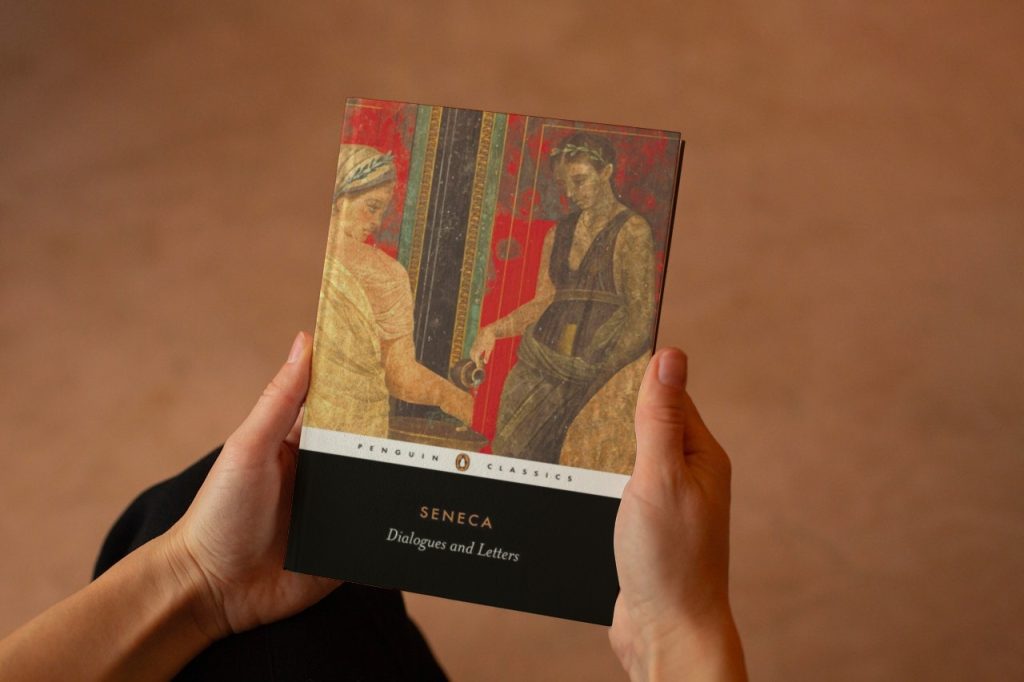
Within the pages of this collection, you will discover the dialogues «On the Shortness of Life» and «On Tranquility of Mind.» These timeless pieces eloquently articulate the fundamental principles of Stoicism, emphasizing concepts of inner strength and self-sufficiency. Additionally, this compilation presents excerpts from «Natural Questions,» Seneca’s in-depth examination of natural phenomena like the Nile’s cataracts and earthquakes. Also featured is «The Consolation of Helvia,» a touching expression of Seneca’s efforts to console his mother’s sorrow over their physical distance.
Dialogues and Essays
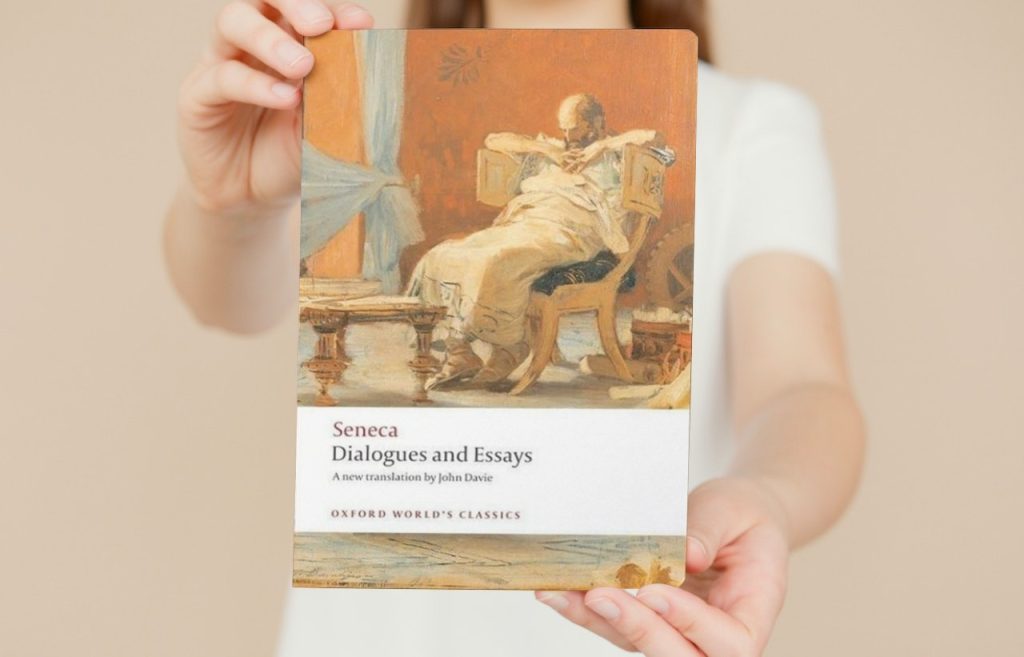
Alain de Botton’s widely acclaimed work, «The Consolations of Philosophy,» which later inspired a six-part TV series, has played a pivotal role in bringing ancient philosophy, particularly the writings of Seneca, into the mainstream. This exceptional volume presents the most outstanding translation of Seneca’s dialogues and essays available, providing a comprehensive view of his diverse philosophical interests. Within these pages, the Stoic philosopher offers insights on navigating a tumultuous world.
As a mentor to the young emperor Nero, Seneca crafted practical philosophical exercises that drew inspiration from the contemporary Roman society while addressing the intellectual challenges of his era. Remarkably, these writings resonate with modern readers, as Seneca delves into topics like the brevity of life, inner tranquility, anger, compassion, happiness, and the sorrow of losing a loved one. Seneca’s writing style, marked by accessibility and aphoristic wisdom, makes his works an ideal entry point to Stoic philosophy, defying their perceived austerity and dogmatism.
This edition combines a modern, clear translation by John Davies with Tobias Reinhardt’s insightful introduction to Seneca’s life, literary style, and enduring influence. Reinhardt also offers an illuminating summary of Stoic philosophy and Seneca’s unique interpretation of it. The book’s comprehensive notes enrich the reading experience, making it an indispensable resource for anyone seeking a profound understanding of Seneca’s philosophical legacy.
Ancient Wisdom for Today: Delving into the Pages of Meditations by Marcus Aurelius

Even after nearly two millennia, Meditations continues to resonate deeply with those seeking a life of significance.
Among the treasures of ancient literature, Meditations by Marcus Aurelius, the philosopher-emperor of Rome (A.D. 161–180), stands as a monument of influence. A collection of spiritual exercises brimming with sagacity, practical counsel, and profound insights into human behavior, it remains an unparalleled work of spiritual and ethical introspection. Marcus’s counsel and wisdom—spanning from navigating the complexities of existence to facing adversity and engaging with others—have positioned Meditations as a must-read for leaders and thinkers alike. Its straightforward and intimate style has also resonated with countless everyday readers. For those grappling with the interplay of leadership, personal integrity, and spiritual well-being, «Meditations» holds as much relevance today as it did two millennia ago.
In Gregory Hays’s latest translation—the first in over three decades—Marcus’s reflections emerge with renewed immediacy. Hays’s clear and unadorned English vividly captures the conciseness and elegance of the original Greek text. This rendition presents Marcus’s insights with a newfound directness and potency.
Complemented by an Introduction that delves into Marcus’s life, his Stoic doctrine, the structure of Meditations, and its enduring impact, this edition invites readers to fully rediscover the thoughts of one of history’s most enlightened and astute leaders.
Epictetus’ Guide to Inner Freedom: Embracing Stoic Principles for a Meaningful Life
Discourses, Fragments, Handbook
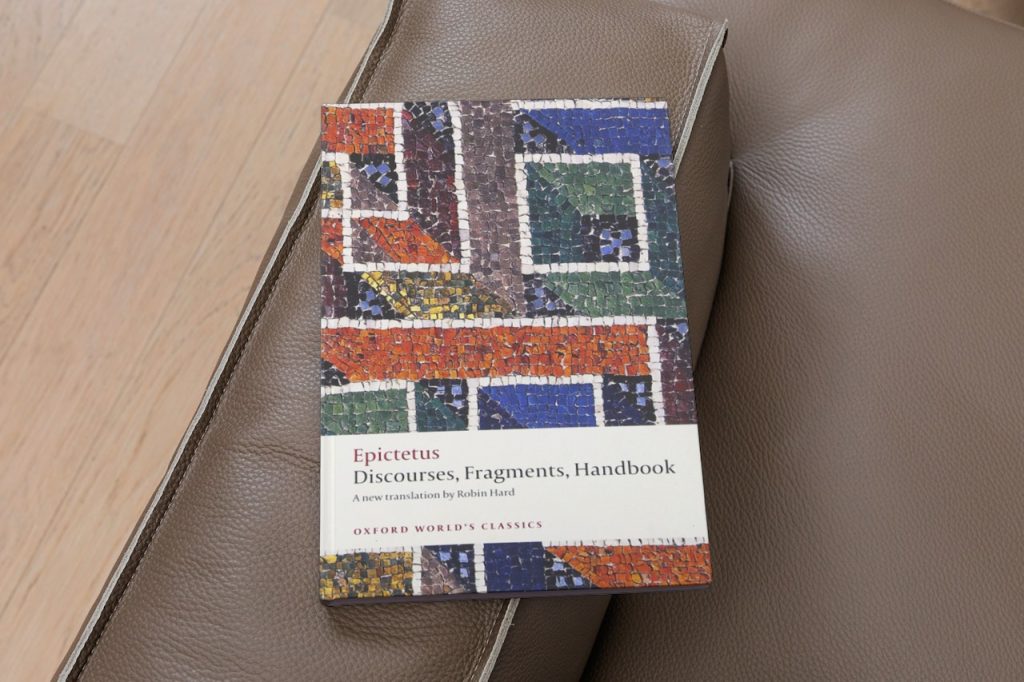
Epictetus’ Discourses have garnered unparalleled readership and influence throughout the ages as a paramount work of Stoic philosophy. These writings lay out the foundational ethical principles of Stoicism, carefully crafted to assist individuals in applying them to their lives and shaping their existence for the better. Epictetus, a former slave turned teacher, infuses these discourses with a dynamic informality, enriched by anecdotes and dialogues.
With unwavering conviction, he delivers a direct and provocative message: the root of happiness lies within our control, and we possess the potential to achieve it through introspection and relentless effort. This translation presents the complete Discourses, coupled with the Handbook outlining key themes and preserved fragments. Robin Hard’s precise and approachable translation is complemented by Christopher Gill’s comprehensive introduction and enlightening annotations.


